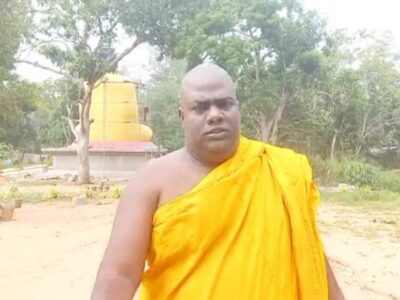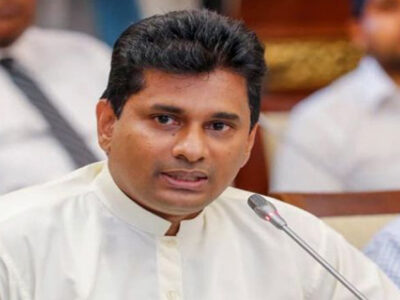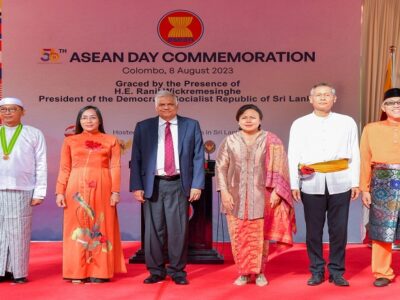(COLOMBO, LANKAPUVATH) –Globally, 2.1 billion people lack access to safely managed drinking water services. Furthermore, over 80% of the wastewater generated by society flows back into the environment without being treated or reused.
This year’s theme for World Water Day is “Nature for Water”, with a focus on finding nature-based solutions to the water challenges we face. The UNDP supported ‘Climate Resilient Integrated Water Management Project (CRIWMP)’ is one such example of using nature based solutions to improve irrigation of water tanks in the Northern, Eastern, North Western and North Central Provinces by investing in improving the community irrigation water infrastructure, scaling-up decentralized drinking water systems, and strengthening early weather warnings, flood-response, and water management. This seven-year project (2017-2024) is aimed at strengthening the resilience of Smallholder Farmers in Sri Lanka’s Dry Zone to climate variability and extreme events.
To support water purification under this programme, a Trade Fair on Advanced and Appropriate Water Treatment Systems to treat water in locations with serious water quality issues was held at the Red Verandah, BMICH in commemoration of World Water Day 2018, where nine companies showcased nature-based solutions, in parallel with alternative approaches, in water treatment technologies and practices.
This was initiated by the Green Climate Fund (GCF) supported Climate Resilient Integrated Water Management Project (CRIWMP) together with the World Bank assisted Water Supply & Sanitation Improvement Project.
The above two Projects aim to improve access to potable water by enhancing community-managed rural water supply infrastructure including advanced filtration and treatment systems with appropriate disinfection processes.
Speaking about UNDP’s support, Ms. Lovita Ramguttee, Deputy Country Director, UNDP Sri Lanka stated, “Nature-based solutions have the potential to solve many of our water challenges. UNDP remains committed to exploring these solutions together with our partners, to support smallholder farmers in the Dryzone of Sri Lanka to ensure we can protect and manage our water resources in a sustainable manner.”
The Ministry of Mahaweli Development and Environment, the Ministry of City Planning & Water Supply, National Water Supply & Drainage Board, Department of National Community Water Supply, Presidential Task Force on Prevention of CKDu Ministry of Science & Technology, University representatives, private sector contractors are a few of the stakeholders who participated at this trade fair.
Speaking about this, Eng. D.U. Sumanasekara, General Manager of the National Water Supply and Drainage Board stated, “The rural communities in Sri Lanka need potable water for which new and advanced treatment technologies have to be showcased and promoted. I appreciate the combined effort of these two projects to promote these nature-based technologies to improve the quality of life of the rural people.”
With the advancement of Nano technology and other innovative water treatment technologies; many new water treatment options have been developed both locally and internationally. This trade fair explored the best solutions to address drinking water concerns at a community level in the Dryzone of Sri Lanka.




